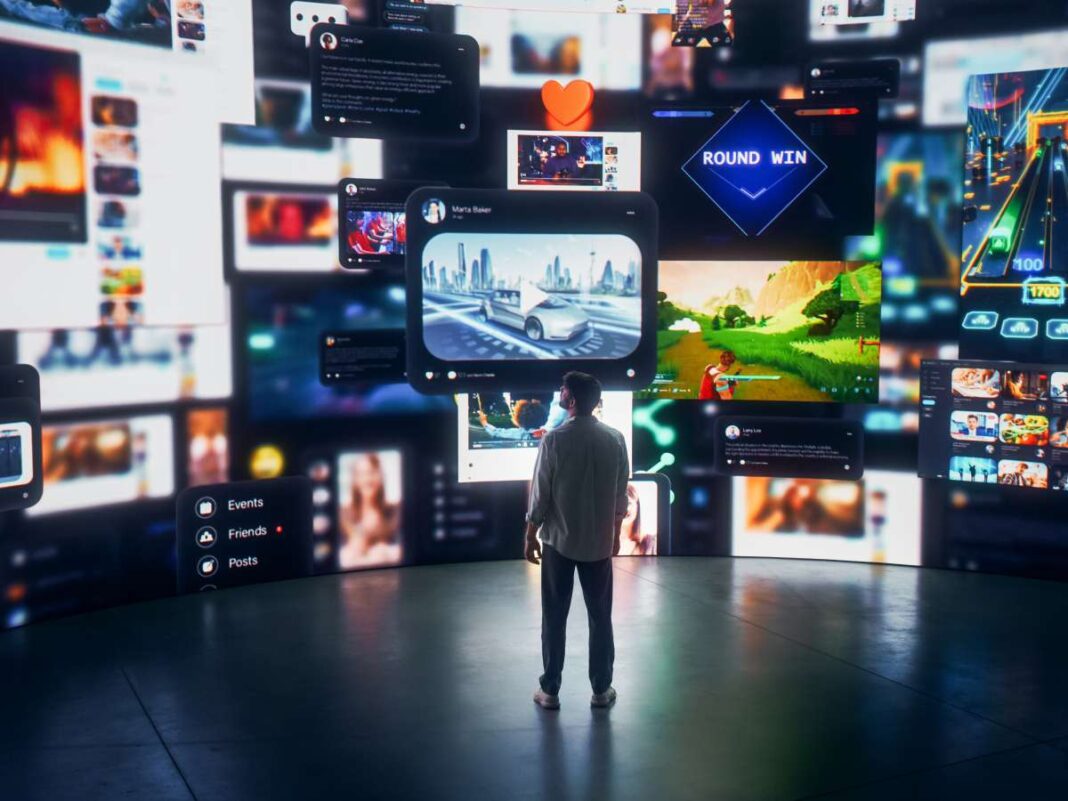In a rapidly evolving world, 2025 stands out as a year of significant transformation in the entertainment landscape. From the resurgence of nostalgia-driven content to the integration of advanced technologies, the industry is experiencing a dynamic shift that is reshaping how audiences consume and interact with media. Brands, creators, and consumers alike are navigating a new era defined by authenticity, innovation, and a renewed focus on societal values.
The Rise of AI and Immersive Technologies
Artificial Intelligence (AI) and immersive technologies are no longer just futuristic concepts; they are actively transforming interactions and experiences across the entertainment industry. Generative AI tools are enabling creators to produce content more efficiently, personalize audience experiences, and develop new forms of engagement.
Streaming services are incorporating AI to recommend content, optimize advertising, and streamline operations. According to Deloitte’s Media and Entertainment Outlook, AI is poised to revolutionize content production while lowering costs and enabling efficiency. However, this technological advancement also presents challenges, such as eroding traditional business models and raising questions about reliability and authenticity.
Storytelling Evolves with Decentralization
The narrative landscape is shifting as storytelling evolves due to randomness and decentralization. Platforms like TikTok and YouTube have democratized content creation, helping people share their stories and reach global audiences. The creator economy has grown by 6,400%, with over 50 million people now considering themselves creators.
Micro-influencers, with follower counts between 15,000 and 100,000, are making significant impacts in niche communities. They boast higher engagement rates—3.86% compared to 1.21% for larger accounts—and are becoming vital partners for brands aiming to connect authentically with consumers.
Nostalgia Dominates Pop Culture
A significant trend in 2025 is the resurgence of nostalgia and vintage aesthetics. Early 2000s fashion and retro designs are making a comeback, with searches for vintage aesthetics increasing by 70% year-over-year, according to McKinsey. Homeowners are embracing retro kitchen designs, with interest surging by 120%.
In entertainment, reboots and sequels are capturing audiences’ hearts. Films like “Bridget Jones – Mad About the Boy” see Renée Zellweger reprising her iconic role, while Jamie Lee Curtis and Lindsay Lohan reunite for a new “Freaky Friday” sequel. This trend reflects a collective yearning for the familiar comforts of the past amid rapidly changing times.
Consumer Priorities Shift Towards Authenticity and Purpose
Modern consumers are increasingly prioritizing brands with purpose-driven initiatives over price or convenience. Environmental activism is at the forefront, with 81% of consumers demanding action on climate change. Sustainable practices are not just appreciated—they are expected. Brands like Unilever’s “Sustainable Living Brands” have experienced accelerated growth, emphasizing the importance of corporate responsibility.
Furthermore, material possessions are being deprioritized by 73% of consumers in favor of investing in experiences. Minimalist lifestyles are influencing 39% of consumers, highlighting a shift towards value placed on shared moments and personal growth.
The Impact of Social Media and Digital Platforms
Social media has become a powerful tool for cultural expression and demand for transparency. TikTok, for instance, facilitates brand discovery for 63% of users, influencing trends across fashion, music, and lifestyle. Global social commerce sales are projected to cross $1.2 trillion by this year, showcasing the significant role these platforms play in consumer behavior.
Generative AI and advanced algorithms are enhancing user experiences by providing personalized content and recommendations. In retail, AI-powered shopping assistants were used by 38% of consumers in 2024, improving satisfaction for shoppers globally.
Pop Culture Events Shaping 2025
The year is packed with highly anticipated entertainment events:
- Movies: Tom Cruise returns in “Mission Impossible – Final Reckoning,” potentially his final film in the franchise. James Cameron’s “Avatar 3” aims for massive box office success, continuing the epic sci-fi saga.
- Music: Kendrick Lamar headlined the Super Bowl LIX Halftime Show in New Orleans, marking a significant moment in his career. Festivals featuring Lady Gaga, Green Day, and Post Malone are drawing massive crowds, showcasing the enduring appeal of live music events.
- Broadway: Denzel Washington and Jake Gyllenhaal star in a new production of “Othello” at the Barrymore Theatre, bringing classic literature to contemporary audiences.
- Television: Noteworthy series like “Stranger Things” and “The Handmaid’s Tale” are concluding, offering fans dramatic finales. At the same time, new spinoffs like the NBC’s “The Suits Franchise” are expanding beloved universes.
The Embrace of Sustainability and Health in Entertainment
The entertainment industry is increasingly integrating themes of sustainability and health. In fashion, there’s a notable increase in the resale luxury market, fueled by Gen Z’s preference for sustainability and value.
Investments in climate-resilient infrastructure have increased by 18%, redefining urban planning and reflecting a commitment to environmental stewardship. Brands that actively participate in sustainability initiatives are preferred by 84% of global consumers.
Challenges and Opportunities Ahead
Despite the exciting developments, the industry faces challenges such as economic uncertainty, competitive pressures, and the need for digital transformation. The integration of AI and advanced technologies presents both opportunities and risks. As Deloitte notes, companies must strategically modernize operations, leverage partnerships, and embrace innovation to survive and thrive in this volatile landscape.
Conclusion
The entertainment industry in 2025 is a reflection of broader societal shifts towards authenticity, inclusivity, and purpose-driven engagement. As technology continues to advance and consumer priorities evolve, those who adapt and align with these emerging trends will lead the way in redefining entertainment for years to come. Whether through embracing nostalgia, integrating advanced technologies, or prioritizing sustainability, the opportunities for innovation and connection are boundless.

